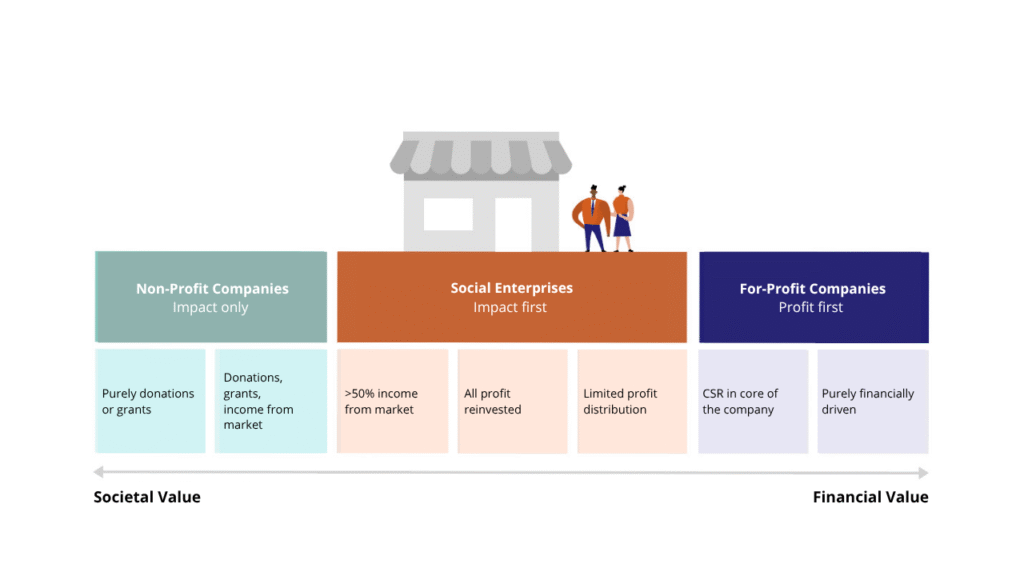A social enterprise is a business that exists to solve social or environmental problems. It makes money like any business, but instead of giving profits to owners or shareholders, it reinvests most of them into doing good.
According to the European Commission, a social enterprise:
- Has a clear social or environmental purpose
- Makes most of its money by trading goods or services
- Reinvests most of its profits into its mission
- Is managed in a fair and open way
A Short History of Social Enterprises
The idea of businesses doing good isn’t new. In the 19th century, cooperatives and worker-owned companies helped people survive tough times.
Over time, more groups used business as a tool for change. In the early 2000s, the term “social enterprise” became more popular, and many governments started to support them.
Today, social enterprises exist all over the world, from small startups to global brands.
Examples of Social Enterprises
Here are a few inspiring examples:
- Grameen Bank (Bangladesh): Offers small loans to people in poverty, especially women, to start their own businesses.
- TOMS Shoes (USA): Became famous for donating a pair of shoes for every pair sold.
- Fairphone (Netherlands): Builds smartphones that are made to last, easy to repair, and use fair materials.
- SALt Lamp (Philippines): SALt has brightened homes in remote coastal barrios and mountain villages, eliminating the cost and hazard of kerosene.
Each of these companies uses business as a way to make the world better.
How Are Social Enterprises Different from Nonprofits and Traditional Businesses?
Social enterprises are unique because they combine the purpose of a nonprofit with the tools of a business.
Unlike nonprofits, which usually rely on donations or grants, social enterprises earn their money by selling goods or services. They aim to be financially self-sustaining while still focusing on a clear social or environmental mission.

The key difference lies in how profits are used. Traditional businesses aim to maximize profit for their owners or shareholders. Social enterprises, on the other hand, reinvest most of their profits back into their mission.
Nonprofits do this too, but they typically don’t run businesses or sell products in the same way.
In short, a nonprofit exists to serve a cause and often depends on outside funding. A traditional business exists to generate profit.
A social enterprise does both: it earns money and uses that money to make a positive impact. Being independent of donations is one of the key advantages of social enterprises compared to nonprofits.
Frequently Asked Questions
Can a social enterprise make a profit?
Yes. In fact, it has to — but most of the profit is used to support the mission.
Is a social enterprise the same as a charity?
No. Charities often rely on donations. Social enterprises earn money by selling something, just like a normal business.
Can anyone start a social enterprise?
Yes! If you want to solve a real problem and you have a business idea, you can start one.
How can I tell if a company is a social enterprise?
Look at what they do with their profits, how they treat their workers and the environment, and what their main goal is. Some social enterprises are certified by groups like Social Enterprise UK or B Lab.
